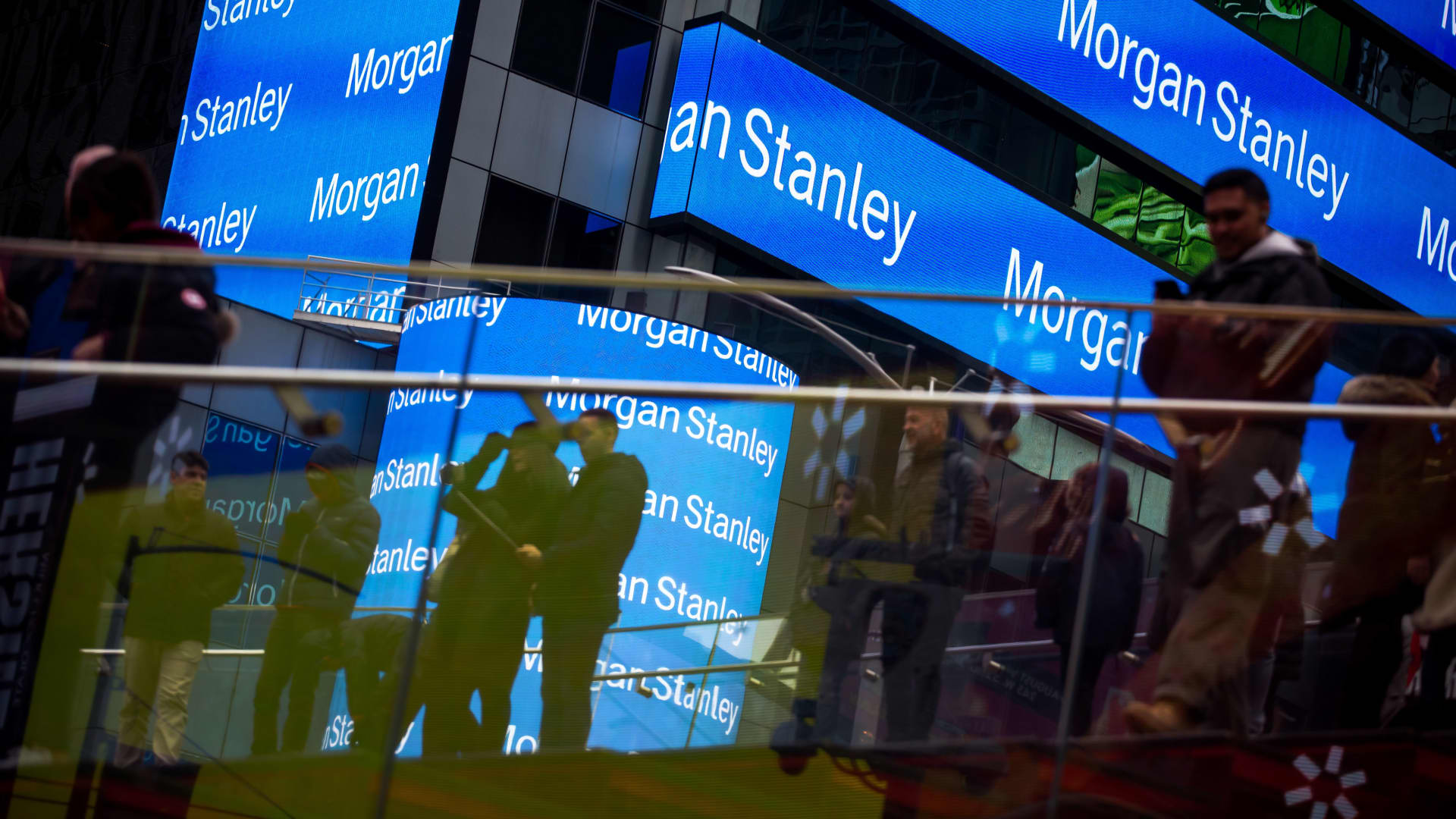Finance
Morgan Stanley OpenAI-powered assistant rolling out for wealth advisors

Signage is displayed outside Morgan Stanley & Co’s headquarters. in the Times Square district of New York.
Michael Nagel | Bloomberg | Getty Images
Morgan Stanley is continuing its adoption of artificial intelligence with a new assistant expected to take over thousands of hours of work from the bank’s financial advisors.
The assistant, called Debrief, keeps detailed logs of advisor meetings and automatically creates draft emails and summaries of the discussions, bank executives told CNBC. Morgan Stanley plans to release the program to the firm’s approximately 15,000 advisors in early July, marking one of the most significant steps yet for the use of generative AI at a major Wall Street bank.
While the company’s previous efforts involved creating a ChatGPT-like service to help advisors navigate the firm’s vast body of research, Debrief puts AI in direct contact with advisors’ most valued resource: their relationships with wealthy customers.
The program, built using OpenAI’s GPT-4, is essentially part of customer Zoom meetings and replaces the note-taking that advisors or junior associates would take by hand, according to Jeff McMillanMorgan Stanley’s head of artificial intelligence.
“What we’re finding is that the quality and depth of the notes are significantly better,” McMillan told CNBC. “The truth is, this device can take notes better than the average human.”
Permission required
Importantly, clients must consent to being recorded each time debrief is used. Future versions will allow advisors to use the program on business devices during in-person meetings, McMillan said.
The rollout will serve as a real test for the vaunted productivity gains of generative AI, which has taken Wall Street by storm in recent months and boosted the value of chipmakers, tech giants and the broader U.S. stock market.
Morgan Stanley’s wealth management division receives about 1 million Zoom calls a year, the bank told CNBC. While estimates vary, a Morgan Stanley consultant involved in the Debrief pilot said the program saves 30 minutes of work per meeting; consultants typically spend time after meetings taking notes and action plans to meet client needs.
Morgan Stanley’s new Debrief program, a new AI tool for wealth management advisors based on OpenAI’s GPT-4.
Courtesy: Morgan Stanley
“As a financial advisor, I have four, five or six meetings a day,” says Don Whitehead, a Houston advisor who tested the software. By “having the note-taking service built in through AI, you can really be involved in the meeting, you are actually much more present.”
It remains to be seen what consultants will do with the hours reclaimed from essential work. In a sense, Morgan Stanley’s projects in generative AI amount to a “grand productivity experiment,” McMillan said.
If, as McMillan and others believe, advisors will spend more time serving clients and seeking new ones, the technology should drive growth in Morgan Stanley’s assets under management, as well as client and advisor retention.
Morgan Stanley’s asset management division is one of the largest in the world $5.5 trillion in customer assets from March; the company wants to reach $10 trillion.
It will take at least a year to determine whether the technology increases advisor productivity, McMillan said.
“I’m the analytics guy, but the advisors will tell you they’re at their best when they’re interacting with clients,” McMillan said. “None of them will tell you they like taking notes or looking at research reports, right? That’s not why they got into this business.”
The broader vision
Ultimately, Morgan Stanley’s vision for AI is to create a layer of technology that seamlessly helps advisors perform all their tasks – sending proposals, balancing portfolios, creating reports – with simple prompts, Morgan Stanley’s head of wealth management Jed Finn told investors in February.
Many of the core tasks that will be automated, such as parsing contracts and opening accounts, are universal across Morgan Stanley, including across trading and banking divisions, McMillan noted.
According to a recent study, finance jobs are among the most vulnerable to being displaced by AI Citi Group report. AI adoption could boost industry profits by $170 billion by 2028, Citigroup said.
Although the process is still in its early stages, McMillan acknowledged that business models will likely change in ways that are difficult to predict.
“I think there will be disruption in some areas,” he said. “We look back at all the things we think we’re going to lose, but we don’t see what lies ahead.”
What lies ahead is the need for millions of fast-paced engineers to train AI to create the desired outcomes for businesses, McMillan said; it took Morgan Stanley months to refine the clues for the interrogation, he noted.
McMillan said he even told his teenage children to consider a career as a fast-paced engineer.
“They’re going to learn how to talk to machines, and tell those machines what to do, and interact with people and collaborate,” he said. “It’s a completely different game than how we’ve been working.”













